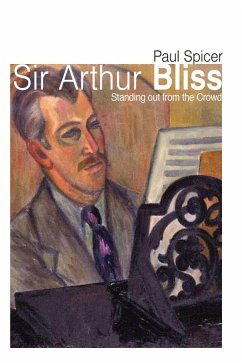Arthur Bliss (1891-1975) was one of the most important British musicians of his age. Born into a family where music played a highly significant role, his talent emerged early. He served with distinction in the Great War, in which he was both injured and gassed. After the War he set the musical world alight with ultra-modern works, earning himself the soubriquet enfant terrible and leading to his first major work, the Colour Symphony. His dual American/British birthright led to a close connection with the USA and marriage to an American girl, Trudy Hoffman, who would be a mainstay of his life. Before long he became the most performed British composer abroad and his portfolio of works included ballet, film (H.G. Wells's Things to Come remains one of the finest film scores), opera, orchestral, chamber, choral works and song. He was a diplomat, a skill that was recognized in many appointments from the Government to travel using music as soft power, notably to Russia in 1956. He served as Director of Music at the BBC from 1942-4, was knighted and soon after appointed Master of the Queen's Music. Bliss was a private figure who stated that the only way to get to know him was through his music. Paul Spicer takes this as his starting point for this pioneering biography, which underlines the timely importance of a complete reappraisal of this important composer's music.
Dieser Download kann aus rechtlichen Gründen nur mit Rechnungsadresse in A, B, BG, CY, CZ, D, DK, EW, E, FIN, F, GR, H, IRL, I, LT, L, LR, M, NL, PL, P, R, S, SLO, SK ausgeliefert werden.









